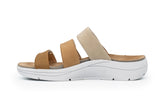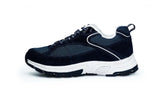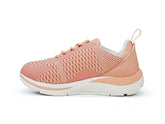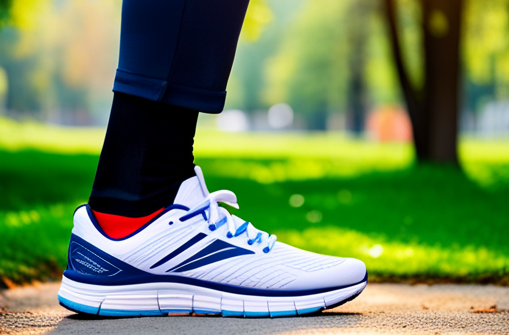A Guide to Choosing Orthopaedic Shoes for Comfort and Foot Health
Are your feet feeling sore and tired after a day of being on the go? Do you often experience foot problems such as plantar fasciitis, bunions, or heel spurs? Perhaps it's worth contemplating orthopaedic shoes. They not only offer relief for your feet, but also bring back the joy of walking.
If you're on the lookout for orthopaedic shoes, it's important to ask yourself these five essential questions.
1. Prioritising Comfort
If you're considering orthopaedic shoes, prioritising comfort is essential. Wearing shoes that are too tight and uncomfortable can actually make your pain even worse.

When searching for shoes, it's important to find ones that offer a range of widths to ensure a perfect fit for your feet.
If you often experience swelling in your feet throughout the day, it might be worth considering footwear options that have a flexible upper or velcro closures. These features can help accommodate any changes in the shape of your feet. Remember to ease into wearing your new shoes, giving your feet time to adapt.
2. Look for Arch Support
Orthopaedic shoes are known for their exceptional arch support. If you're dealing with foot or heel discomfort caused by flat feet or fallen arches, it's worth considering shoes that provide excellent arch support. This feature functions as a cushioning mechanism during walking, relieving the strain on your feet and enhancing overall comfort.
3. Comfort of the Toe Box

If you happen to have hammertoes or bunions, it's important to give some extra consideration to the toe box. Make sure the width is sufficient to comfortably fit your toes without feeling overly tight.
Finding the perfect fit for your shoes involves striking a balance between snugness and comfort. You want them to feel secure without being too tight, allowing for a comfortable length from your toes to the end of the shoe.
A good rule of thumb is to aim for a width that is approximately the same as the width of a finger.
4. Material Matters
Let's take a moment to discuss the importance of the materials used in the construction of orthopaedic shoes. When it comes to footwear, leather is known for its durability, but it may not provide the best breathability.
It's important to consider that investing in top-notch materials might come with a higher initial price tag, but it will ultimately prolong the life of your shoes.
5. Purpose and Condition
Consider the purpose of the shoes and the specific requirements you want them to meet.
If you lead an active lifestyle, it's important to find shoes that provide stability and excellent shock absorption, particularly if you engage in running or sports activities.
If you're someone who is dealing with plantar fasciitis, having proper arch support is absolutely crucial. If you're on the hunt for shoes to accompany you through your daily activities, it's crucial to prioritise comfort and support above all else.
Extra Tip: Seek Advice from an Orthopedist

If you're unsure about which pair to choose, it might be a good idea to consult with an orthopedist. They offer valuable guidance to help you discover the perfect shoes that cater to your specific requirements and foot structure.
Ultimately, it is important to ensure that walking is always a comfortable and enjoyable activity. Orthopaedic shoes may come with a higher price tag compared to regular footwear, but the advantages they offer for foot health and overall well-being make them a valuable investment. Take the time to select the perfect pair that will meet both of these criteria. Wave farewell to foot discomfort and welcome the sensation of walking on fluffy clouds!
If you want to be proactive and keep your feet pain-free, DiabeticShoe.in is your one-stop shop for all things related to foot health.
Browse our extensive collection of Diabetic footwear for Men and Women to learn more!








